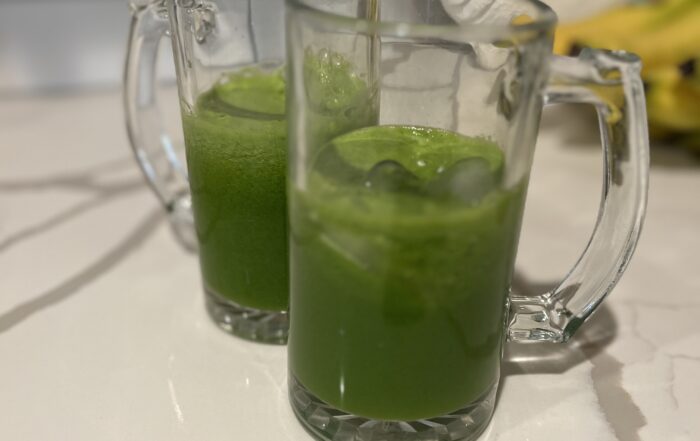Mind
Welcome to our page dedicated to the fascinating realm of the mind and the transformative power of biohacks to enhance mind health. Our minds are the epicenter of our experiences, thoughts, and emotions, influencing every aspect of our lives.
Just as physical health is crucial, nurturing our mental well-being is equally important. However, in today’s fast-paced world, stress, anxiety, and other mental challenges can take a toll on our minds. This is where biohacking steps in.
Biohacking involves employing innovative techniques, lifestyle modifications, and practices to optimize our mental processes and promote a healthier mind. By incorporating biohacks into our daily routines, we can potentially reduce stress, enhance focus and cognitive abilities, improve emotional resilience, and cultivate overall mental well-being.
In this comprehensive guide, we will explore various biohacks that have shown promising results in boosting mind health and improving mental performance. From mindfulness practices and meditation techniques to sleep optimization and nutrition tips, we will provide you with evidence-based information and practical advice to empower you on your journey towards a healthier mind.
It’s important to recognize that each person’s mind is unique, and what works for one individual may not work for another. Therefore, we recommend considering personal preferences and consulting with mental health professionals when implementing new strategies to ensure they align with your specific needs.
Get ready to delve into the world of biohacking and discover effective ways to improve your mind health, enhance cognitive abilities, and cultivate a more balanced and resilient mental state. Together, let’s unlock the potential of biohacks and embark on a transformative journey towards a healthier mind.
The brain’s capacity to operate swiftly deteriorates without enough sleep:
Attention levels deteriorate, and memory problems develop.
Problem-solving skills in the brain are severely diminished.
Decision-making skills are impaired, and the brain develops fixed thought patterns that make it challenging to come up with original solutions to problems.
Strive for 6.5 to 7.5 hours of sleep each night.
1) Do the most crucial tasks first thing in the morning while your concentration is at its best.
2) Reserve the small tasks that don’t demand much mental effort for the evening, such as laundry, dishes, and day-to-day preparation.
Both your body and your mind can benefit from good diet. Those who follow a Mediterranean-style diet, for instance, which prioritizes fruits, vegetables, fish, nuts, unsaturated fats (like olive oil), and plant-based sources of protein, are less likely to experience cognitive decline and dementia.
It’s a method that was used in classical Rome and Greece, and it’s a straightforward but efficient way to remember a lot of information.
You first draw a mental blueprint of a community or a building. It ought to contain recognizable landmarks and signage. For instance, if you were to design a retail center, the first establishment on the right would be a jeweler, followed by a burger joint and a gym. You now keep the products you want to remember inside the various shops. The interior of each store will be laid up similarly, with various sections and shelves. And the trick is to always combine very odd and different things, like the title of my memory book.
It is hypothesized that melanopsin-positive cells in the retina send signals to the suprachiasmatic nucleus, but they are not photoreceptive cells that allow you to see; rather, they are photoreceptive cells that tell the parts of your brain that control your circadian rhythm things like how bright and how blue the environment is. Another reason why persons with migraines find blue light so unpleasant is that there is a synapse on some pain-representing cells somewhere in the thalamus.
Try to integrate it into as many different neural function modalities as you can if you want to learn something. For instance, make notes in the margin while learning something new. The process of ingesting the information into your motor system will aid in memory even if you don’t read the notes again.
The motor system has all of this lovely interplay with the sensory stations in the brain, these more cognitive stations, which is something that has emerged out of the field in the last 50 years as our brain has evolved to move through the world. So, using certain circuits has the potential to significantly strengthen memories on specific brain regions.
Meditation is a terrific brain trick. Although it requires practice, it is not difficult. If you know how to do it, it will be simpler for you to unwind and go asleep.
When we are conscious, we are observing the contents of our working memory, and the goal of meditation is to use working memory to control the flow of information that reaches consciousness or to keep specific information out of consciousness when you want a clear, empty state of mind. Working memory is crucial to comprehend since sometimes it’s about letting information pass by and seeing it without getting distracted by it.
A growth mindset is the belief that one’s abilities and intelligence can be developed and improved over time through dedication and hard work. This mindset has numerous benefits, including:
- Increased resilience: People with a growth mindset are more resilient in the face of setbacks and failures because they believe that they can learn from these experiences and use them as opportunities to improve.
- Improved learning and academic achievement: Research has shown that students with a growth mindset are more likely to embrace challenges and persevere through difficult tasks, leading to improved academic performance.
- Increased motivation: People with a growth mindset are more motivated to learn and improve because they believe that their efforts will lead to progress and success.
- Greater creativity and innovation: A growth mindset encourages people to think outside the box and explore new ideas, which can lead to greater creativity and innovation.
- Better relationships: People with a growth mindset are more open to feedback and willing to learn from others, which can lead to stronger and more positive relationships.
- Greater sense of purpose: People with a growth mindset are more likely to see challenges and setbacks as opportunities for growth and development, which can lead to a greater sense of purpose and meaning in life.
Overall, having a growth mindset can lead to greater success and fulfillment in many areas of life, including education, career, relationships, and personal development.
While it is important to have goals and aspirations, keeping your expectations low can be beneficial in several situations. Here are some reasons why:
- Avoiding disappointment: High expectations can often lead to disappointment when things don’t go as planned. By keeping your expectations low, you can reduce the likelihood of feeling let down or frustrated.
- Minimizing stress: When you have low expectations, you may feel less pressure to perform or achieve certain outcomes. This can reduce stress and anxiety, allowing you to focus on the task at hand without getting overwhelmed.
- Encouraging gratitude: When you keep your expectations low, you may be more likely to appreciate the small wins and successes that come your way. This can help you cultivate a sense of gratitude and appreciation for what you have, rather than always striving for more.
- Promoting humility: Keeping your expectations low can help you stay humble and avoid becoming overly confident or arrogant. This can be especially important in situations where you are working with others or need to maintain good relationships.
- Allowing for flexibility: When you have low expectations, you may be more open to unexpected outcomes or opportunities that arise. This can allow you to be more flexible and adaptable, which can be an asset in many areas of life.
Overall, while it is important to have goals and aspirations, keeping your expectations low can help you stay grounded, reduce stress, and appreciate the journey as much as the destination.
Gratitude is a powerful emotion that involves feeling thankful and appreciative for the positive things in one’s life. Practicing gratitude has numerous benefits, including:
- Increased happiness: Research has shown that people who regularly practice gratitude tend to be happier and more satisfied with their lives.
- Improved relationships: Expressing gratitude can strengthen relationships by showing appreciation for others and fostering a sense of connection and positivity.
- Reduced stress: Gratitude can help reduce stress by promoting positive emotions and feelings of contentment and satisfaction.
- Improved physical health: Gratitude has been linked to improved physical health, including better sleep, lower blood pressure, and stronger immune function.
- Increased resilience: Gratitude can help people cope with difficult situations by promoting a more positive outlook and encouraging a focus on the positive aspects of one’s life.
- Improved self-esteem: Expressing gratitude can help people feel more confident and self-assured by focusing on their strengths and accomplishments.
Overall, practicing gratitude is a simple but powerful way to improve one’s mental and physical well-being, strengthen relationships, and cultivate a more positive outlook on life.
These biohacking techniques and tools can help:
You can reframe the day to focus on the positive and take stock of all the nice things that happen to you by keeping a gratitude journal in which you list three to five things for which you are grateful.
Conduct a stroll of gratitude, during which you express gratitude and offer good vibes to any living things you come across. You can simply add this into your regular routine if you jog or walk to work.
Send a thank-you note once a week to a person who has helped you or means a lot to you. It might be a close relative, an old friend, or even a coworker who never forgets to keep your favorite coffee on hand.
Begin the day with a ritual, such as meditating, and set an intention to be grateful for all you encounter.
Taking a break and coming back to a problem later can often be helpful in finding a solution. Here are some reasons why:
- Mental fatigue: When we work on a problem for an extended period, our mental energy can become depleted, making it difficult to think clearly and creatively. Taking a break and doing something else can give our minds a chance to rest and recharge, which can help us approach the problem with a fresh perspective.
- Incubation: When we step away from a problem, our subconscious mind continues to work on it in the background. This process, known as incubation, can help us come up with new ideas and solutions without actively thinking about the problem.
- Increased creativity: Doing something different, such as going for a walk or engaging in a creative activity, can help stimulate our creativity and inspire new ideas. This can be especially helpful when we feel stuck or blocked in our thinking.
- Different perspective: Taking a break and coming back to a problem later can also give us a chance to approach it from a different perspective. Sometimes, simply stepping away from a problem can help us see it in a new light and come up with new solutions.
Overall, taking a break and coming back to a problem later can be a helpful strategy for finding a solution. By giving our minds a chance to rest, incubate, and approach the problem from a different perspective, we can often find new ideas and solutions that we may not have otherwise considered.
Detaching from work is important for our mental health and overall well-being. Here are some reasons why:
- Reduced stress: Constantly thinking about work and feeling like we are “on call” 24/7 can lead to chronic stress, which can have negative effects on our physical and mental health. Detaching from work can help us reduce stress and promote relaxation.
- Improved focus and productivity: Taking breaks from work and detaching from our work responsibilities can actually help us be more focused and productive when we return to work. This is because our brains need time to rest and recharge in order to perform at their best.
- Enhanced creativity: Detaching from work can also stimulate our creativity and help us generate new ideas. When we allow our minds to wander and engage in other activities, we can gain new perspectives and insights that can benefit our work in the long run.
- Better work-life balance: When we detach from work, we can focus on other important aspects of our lives, such as spending time with loved ones, pursuing hobbies, and engaging in self-care. This can help us achieve a better work-life balance and improve our overall quality of life.
- Improved relationships: Detaching from work can also help us strengthen our relationships with others. By being fully present and engaged in our interactions with others, we can deepen our connections and foster more meaningful relationships.
Overall, detaching from work is important for our mental health, productivity, creativity, work-life balance, and relationships. By taking time to disconnect from work and engage in other activities, we can promote greater well-being and fulfillment in all aspects of our lives.
Avoiding negative people and stressful environments can have numerous benefits for our mental and physical health. Here are some reasons why:
- Reduced stress: Negative people and stressful environments can cause chronic stress, which can have negative effects on our physical and mental health. Avoiding these sources of stress can help us reduce stress levels and improve our overall well-being.
- Improved mood: Negative people and stressful environments can also bring us down and affect our mood and outlook on life. By avoiding these sources of negativity, we can improve our mood and feel more positive and optimistic.
- Greater happiness: When we surround ourselves with positive people and environments, we are more likely to experience greater happiness and life satisfaction.
- Increased energy: Negative people and stressful environments can be draining and deplete our energy levels. By avoiding these sources of negativity, we can conserve our energy and feel more refreshed and energized.
- Better relationships: Avoiding negative people can also help us build stronger and more positive relationships with others. When we surround ourselves with positive, supportive people, we are more likely to develop healthy and fulfilling relationships.
- Improved health: Chronic stress can have negative effects on our physical health, including increased risk of heart disease, diabetes, and other health problems. By avoiding negative people and stressful environments, we can promote better health and reduce our risk of these conditions.
Overall, avoiding negative people and stressful environments can have numerous benefits for our mental and physical well-being. By prioritizing our own well-being and surrounding ourselves with positivity, we can cultivate greater happiness, energy, and fulfillment in our lives.
Eating a healthy, balanced diet is important for overall brain health, but there are some specific types of food that are particularly beneficial for the brain. Here are some of the best types of food for your brain:
- Fatty fish: Fatty fish, such as salmon, sardines, and mackerel, are rich in omega-3 fatty acids, which are important for brain health. Omega-3s have been shown to improve cognitive function, memory, and mood.
- Nuts and seeds: Nuts and seeds, such as almonds, walnuts, and flaxseeds, are also rich in omega-3s and other nutrients that are important for brain health. They are also a good source of vitamin E, which has been shown to improve cognitive function.
- Berries: Berries, such as blueberries, strawberries, and blackberries, are rich in antioxidants, which help protect the brain from damage caused by free radicals. They have also been shown to improve cognitive function and memory.
- Leafy greens: Leafy greens, such as spinach, kale, and broccoli, are rich in nutrients that are important for brain health, including vitamin K, lutein, and folate. They have also been shown to improve cognitive function and memory.
- Whole grains: Whole grains, such as brown rice, quinoa, and oatmeal, are a good source of complex carbohydrates, which provide the brain with a steady supply of energy. They also contain vitamins and minerals that are important for brain health.
- Dark chocolate: Dark chocolate contains flavonoids, which have been shown to improve cognitive function and mood. It is also a good source of magnesium, which is important for brain health.
Overall, eating a diet rich in these types of food can help support brain health and improve cognitive function, memory, and mood.
Practicing awareness can help improve memory in several ways:
- Attention: One of the key components of awareness is paying attention to the present moment. By practicing awareness, you can improve your ability to focus and pay attention to what is happening around you. This can help you better encode information into your memory.
- Mindfulness: Practicing mindfulness can also help improve memory. Mindfulness involves being fully present in the moment and non-judgmentally observing your thoughts and feelings. By practicing mindfulness, you can reduce stress and improve your ability to recall information.
- Memory consolidation: Memory consolidation is the process of moving memories from short-term memory to long-term memory. Studies have shown that practicing awareness can enhance memory consolidation, leading to improved recall of information over time.
- Brain plasticity: Practicing awareness can also enhance brain plasticity, which is the brain’s ability to change and adapt over time. By stimulating the brain through awareness practices, you can create new neural connections and improve overall brain function, including memory.
Overall, practicing awareness can help improve memory by enhancing attention, mindfulness, memory consolidation, and brain plasticity. By incorporating awareness practices into your daily routine, you can improve your ability to remember important information and enhance your overall cognitive function.
An Indiana University study showed that writing something down physically activated areas of the brain that were inactive while only trying to remember it or typing it into a computer. Maybe it’s because writing forces words or images into your memory more deeply than simply trying to recall because your hand is connected to specific brain regions. Whatever the cause, it is effective. Make a note of it so you’ll remember it.
The link between cognition and action may be closer than people believe, thus it is particularly beneficial to play sports like tennis or ping pong where you must create exact motions toward dynamic objectives. Your cognitive function may benefit if you become more adept at completing spatial tasks.
The most effective brain tricks are more akin to planning or performance tricks. Each has a certain time of the day when their brain functions at their best, so one scheduling trick I employ is to reserve that period of time for crucial work. I advise allocating your most productive time to your most difficult jobs. I don’t think you’re making the most use of your ability if you check emails at 7 in the morning when you’re most productive.
“There is certainly evidence that when the prefrontal cortex, the part that does a lot of rational decision making, is depleted in energy, your rationality and ability to make sound decisions decreases.”
“For example, at night when you’re tired and you know you should go to bed, but sometimes there’s something on TV and you know that it will hurt you in the morning, but you’re tired and you go, “You know what? What’s the worst that can happen?” Of course, in the morning, you completely regret your decision of staying up late.”
“Knowing that my brain isn’t optimal at that time has helped me to really force myself to listen to that small part of my brain that makes rational decisions when I know I’m tired, and also prevents me from making any important decisions during that time.”
“So I really try not to send important emails or make work decisions when I’m tired or hungry. It has also helped me to raise our kids because it makes you pause in the midst of trying to deal with a meltdown and to realize that physiologically, they are not at their most rational. So studying neuroscience has allowed me to become more patient with my kids, though their opinion of this may differ with mine.” Dr Tuan Bui, Assistant Professor, University of Ottawa
“One famous brain hack is putting a knot in your handkerchief to remember something. I do something similar, by putting something in an unusual place to remind me that there was something that I needed to take care of. It doesn’t need to be something relevant, the simple fact that something isn’t in its normal location is enough to remind me.” Dr Sabine Krabbe, Janelia
Mental stimulation helps the mind in several ways:
- Brain plasticity: The brain is constantly changing and adapting, and mental stimulation can help promote brain plasticity. Engaging in mentally stimulating activities can help create new neural connections in the brain, which can improve overall brain function and cognitive abilities.
- Memory: Mental stimulation can also help improve memory by providing the brain with new information and challenges. Engaging in activities that require memory, such as learning a new language or playing a musical instrument, can help improve memory function.
- Cognitive function: Mental stimulation can also improve cognitive function by challenging the brain to think critically and creatively. Engaging in mentally stimulating activities, such as solving puzzles or playing strategy games, can help improve cognitive abilities, such as problem-solving, decision-making, and reasoning.
- Mood: Mental stimulation can also have a positive effect on mood. Engaging in activities that are mentally challenging and rewarding can increase feelings of satisfaction and accomplishment, leading to improved mood and overall well-being.
- Neuroprotection: Research suggests that engaging in mentally stimulating activities may help protect against age-related cognitive decline and neurological diseases, such as Alzheimer’s disease.
Overall, mental stimulation is important for maintaining and improving brain function. By challenging the brain with new and stimulating activities, we can promote brain plasticity, improve memory and cognitive function, enhance mood, and protect against age-related cognitive decline and neurological diseases.
Improving blood pressure can have several positive effects on the mind:
- Improved blood flow: High blood pressure can restrict blood flow to the brain, which can lead to cognitive problems and even damage to brain cells. By improving blood pressure, blood flow to the brain can be increased, which can improve cognitive function and reduce the risk of brain damage.
- Reduced risk of stroke: High blood pressure is a major risk factor for stroke, which can cause serious damage to the brain and impair cognitive function. By improving blood pressure, the risk of stroke can be reduced, which can help protect the brain and improve cognitive function.
- Reduced risk of dementia: High blood pressure has also been linked to an increased risk of dementia, a condition that can cause memory loss and other cognitive problems. By improving blood pressure, the risk of dementia can be reduced, which can help protect cognitive function.
- Improved mood: High blood pressure has been linked to an increased risk of depression and anxiety, which can have negative effects on cognitive function. By improving blood pressure, mood can be improved, which can help support cognitive function and overall well-being.
- Improved sleep: High blood pressure can also lead to sleep problems, which can impair cognitive function and mood. By improving blood pressure, sleep can be improved, which can have positive effects on cognitive function and overall well-being.
Overall, improving blood pressure can have many positive effects on the mind, including improved blood flow, reduced risk of stroke and dementia, improved mood, and improved sleep. By taking steps to improve blood pressure, such as through lifestyle changes or medication, we can help protect and support our cognitive function and overall mental health.
Diabetes is an important risk factor for dementia. You can help prevent diabetes by eating right, exercising regularly, and staying lean. But if your blood sugar stays high, you’ll need medication to achieve good control.
It’s critical to comprehend how the brain functions at a high level in order to delve deeper into audio as a biohack.
100 billion neurons in your brain communicate with one another via electricity. Millions of neurons are conversing simultaneously at any given time, which generates a lot of electrical activity. An EEG measurement of this activity yields a wave-like pattern known as a brainwave.
Depending on what you are doing, the frequency of this brainwave changes.
Brainwaves 101:
Beta (14–30 Hz): awake, concentrated, alert. We spend most of the day here.
Alpha (8–14 Hz): meditative state, awake but relaxed, twilight state between sleep and waking, improved memory recall.
Theta (4–8 Hz): light dreaming, access to unconscious mind.
Delta (0.1–4 Hz): deep dreamless sleep, restorative, complete loss of awareness.
It has been demonstrated that a constant sound wave can alter your brainwaves through a process known as frequency following response.
According to Bill Harris’ research, auditory entrainment speeds up the creation of awareness in meditation 8 times more quickly than conventional meditation.
One type of audio brainwave entertainment is binaural beats.
Spending time in nature can have several positive effects on the mind:
- Reduced stress: Nature has been found to have a calming effect on the mind, which can help reduce stress and anxiety. Exposure to natural environments, such as forests or parks, has been found to lower levels of the stress hormone cortisol, which can have positive effects on mental health.
- Improved mood: Spending time in nature has also been linked to improved mood and increased feelings of happiness and well-being. Being in natural environments can help increase feelings of awe and wonder, which can contribute to positive emotions.
- Increased cognitive function: Research suggests that spending time in nature can help improve cognitive function, including attention, memory, and creativity. Exposure to natural environments has been found to improve cognitive performance on tasks that require mental focus and attention.
- Physical activity: Spending time in nature often involves physical activity, such as hiking or biking, which can have positive effects on both physical and mental health. Regular physical activity has been linked to improved mood, reduced stress and anxiety, and improved cognitive function.
- Connection with others: Spending time in nature can also provide opportunities for social interaction and connection with others, which can have positive effects on mental health and well-being.
Overall, spending time in nature can have many positive effects on the mind, including reduced stress, improved mood, increased cognitive function, physical activity, and social connection. By incorporating time in nature into our daily lives, we can help support our mental health and well-being.











